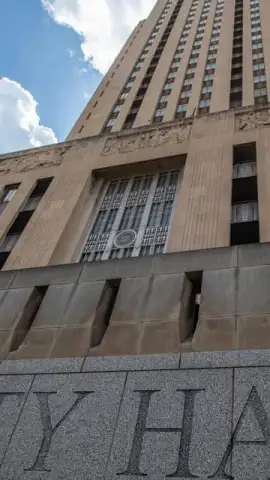
Media Calls for Kansas City to Restore Transparency and Collaboration
In recent weeks, the media has voiced increasing concerns regarding Kansas City’s transparency and its ability to collaborate effectively with the public and various stakeholders. Critics argue that the city government’s lack of open communication has led to mistrust and disengagement, and that this disconnect needs to be addressed in order to rebuild faith in local leadership and foster a more inclusive decision-making process.
A History of Transparency Issues
Transparency, or the lack thereof, has long been a point of contention in Kansas City. Citizens and local media have repeatedly called for clearer access to information, particularly when it comes to city council decisions, financial allocations, and public projects. Over the years, there have been numerous reports of closed-door meetings, last-minute policy changes, and unannounced budget adjustments. This lack of visibility has raised suspicions among residents, who often feel that critical decisions are being made without their input or understanding.
The role of the media has been pivotal in pushing for more openness. Journalists have sought to uncover the truth behind city policies, especially when they involve significant taxpayer money or affect marginalized communities. However, without full cooperation from city officials, these efforts often hit roadblocks. A recent example is the controversial handling of the city’s public safety budget, where many residents felt that the final decisions were made without adequate public consultation or insight.
The Call for Collaboration
Collaboration between Kansas City’s government and its residents has also been a growing concern. Collaborative governance models have become more prominent in recent years, with cities around the country using participatory processes to involve citizens in policy creation and decision-making. Kansas City, however, has struggled to integrate these practices effectively.
In response to these concerns, local advocacy groups and civic organizations have called for a renewed commitment to collaboration. They argue that the city’s leadership should not just inform the public but actively engage them in shaping policies that affect their lives. From neighborhood associations to business leaders, many stakeholders believe that Kansas City can become more responsive to its citizens’ needs through open dialogue and joint efforts in decision-making.
Collaboration is especially critical in areas like affordable housing, transportation infrastructure, and environmental sustainability, where the needs of the community are diverse and complex. For example, residents in lower-income neighborhoods have often reported being left out of discussions on zoning changes or redevelopment projects. Many feel that the city’s decision-making processes lack a sense of inclusiveness, and that the voices of those who will be most impacted are not being heard.
The Role of the Media in Facilitating Change
The media’s role in demanding transparency and collaboration cannot be overstated. By reporting on issues of public concern, holding city leaders accountable, and providing a platform for diverse viewpoints, the media serves as a critical watchdog in ensuring that Kansas City’s government remains responsive to its people. Journalists have called for more access to public records, better communication from elected officials, and clearer explanations of city policies.
Moreover, media outlets can serve as intermediaries between the public and city leaders. Through editorials, interviews, and investigative reporting, the media can shine a spotlight on areas where transparency and collaboration are lacking, and advocate for necessary reforms.
Kansas City is at a crossroads in its approach to governance. As the city continues to grow and face new challenges, restoring transparency and collaboration will be essential in ensuring that all residents have a voice in shaping the city’s future. Whether it’s through open meetings, better digital communication tools, or more inclusive policy processes, it is clear that Kansas City’s leadership must take concrete steps toward rebuilding trust with its citizens.
Conclusion
The media’s call for Kansas City to restore transparency and collaboration highlights a critical need for change in how the city governs and interacts with its residents. Transparency in decision-making, along with a genuine effort to engage the public in the policymaking process, can bridge the gap between officials and citizens. By taking steps to be more open and collaborative, Kansas City has the potential to foster a more inclusive and democratic environment where the voices of all residents are valued and heard. Only through such efforts can the city truly live up to its promises of effective, people-centered governance.







